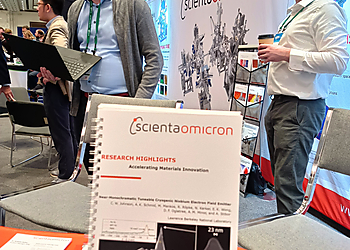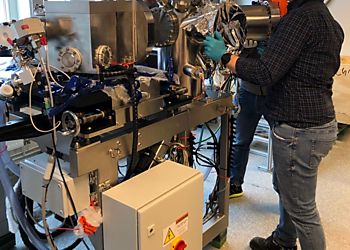News
Winner of Notebook-competition

Earlier this year we launched a competition asking researchers to submit their discoveries made with Scienta Omicron instruments. The winner would get his discovery printed on a Notebook, being displayed at the APS March Meeting this week. We are today happy to announce the winner of the competition: Alexander Stibor's "Near-Monochromatic Tuneable Cryogenic Niobium Electron Field Emitter"
Talks at APS March Meeting

It is finally time for this years APS March Meeting, and of course Scienta Omicron is present! We will present two talks, held by our very own Timo Wätjen, PhD, and Susanna Eriksson, PhD.
International Women's Day

We want to highlight some of our brilliant women working at Scienta for International Womens Day! "We have a responsibility to create a culture of inclusion and respect, where women can thrive and succeed in high-tech roles. Gender diversity is critical to the success of any high-tech company, and we must do everything we can to attract, retain and promote women in all areas of our business." - Henrik Bergersen, CEO
Scienta Omicron Newsflyer Winter 2022/2023

Welcome to the Scienta Omicron Newsflyer for winter 2022. There is a quantum theme about this newsflyer following the award of the 2022 Nobel prize for physics to Alain Aspect, John Clauser and Anton Zeilinger. They each made ground-breaking experiments using entangled quantum states, where two particles behave like a single unit even when they are separated. Their results have cleared the way for new technology based upon quantum information. In this newsflyer, we highlight two of the projects that Scienta Omicron has been involved in which will help to fabricate, manipulate, and characterise the materials that in turn improve our ability to exploit quantum behaviours and will lead to the development of new technologies.
